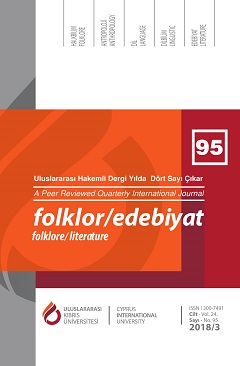Robinsonade Romanlarında Ütopya, Distopya, Mahşer Metaforları ve “Çocuk Edebiyatı” – Robinson Crusoe, Mercan Adası ve Sineklerin Tanrısı
Utopian, Dystopian and Apocalyptic Metaphors in Robinsonade Novels and “Children’s Literature” - Robinson Crusoe, The Coral Island, Lord of the Flies
Author(s): Devrim Çetin GüvenSubject(s): Political Philosophy, Social Philosophy, Novel, Philosophy of Language, Hermeneutics
Published by: Uluslararası Kıbrıs Üniversitesi
Keywords: re-metaphorization; robinsonades; utopia and dystopia; transformation into children’s literature; post-colonial theory;
Summary/Abstract: Robinson Crusoe, first published in 1719, in England, as an epoch-making novel, received an extraordinary interest and became a bestseller. Many writers, inspired by the novel, have produced texts that are derivatives or variations; this was how robinsonades were formed. From the 1850s onwards, Robinson Crusoe came to be read as a work of children’s literature and the robinsonades came to be classified as children’s or adult literature according to the reception of the metaphors used in the source text. In the fields of political economy, pedagogy, anti- and post-colonial cultural studies, theories inspired by the images of the novel were put forward. At the center of this tremendous “Robinson Crusoe discourse” that was constructed in the literary and non-literary fields is the “re-metaphorization” of the metaphors of the source text, especially “island” metaphors. These re-metaphorizations are usually utopian and partly dystopian or apocalyptic. The aim of this article is to examine how utopian and dystopian re-metaphorizations function in the classification of robinsonades as children’s or adult literature. To this end, The Coral Island (1858), Lord of the Flies (1954), and Robinson Crusoe (the source text of the two former texts) were analyzed, from a post-colonial perspective and through the techniques of comparative literature.
Journal: Folklor/Edebiyat
- Issue Year: 24/2018
- Issue No: 95
- Page Range: 135-153
- Page Count: 19
- Language: Turkish

